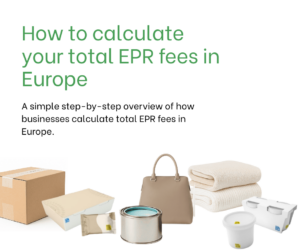US sales tax rules for online marketplaces. Who pays the tax?
US sales tax rules for online marketplaces. Who pays the tax?
The United States is one of those countries that have rules under which marketplaces are responsible for paying taxes on goods and services sold on this marketplace. It must be remembered that sales tax is set at the level of each state and this accordingly leads to the fact that the rules in each state are different. Let’s figure out what needs to be done for a marketplace that is going to trade in the American market.
When you sell online, the main principle for a sales tax calculation is a destination principle. That means that tax needs to be paid in the state of the buyer. But if you have no sales tax registration in the state you cannot collect a sales tax.
All US states with a sales tax implemented Marketplace Facilitator Rules. The last one was Missouri where the law will come into force in 2023. Under these rules, the marketplace facilitator is viewed as the retailer and seller for all sales facilitated through its marketplace.
That means that as soon as Marketplace reaches a sales tax registration threshold for a specific state it must register for a sales tax permit in this state.
There are options that calculate a sales tax for facilitated sales:
First option:
- A marketplace hasn’t got a nexus in the arrival state. A seller hasn’t got a sales tax permit. In such a scenario, a marketplace doesn’t need to calculate a sales tax.
Second option:
- A marketplace hasn’t got registration in the state. Merchant has a sales tax permit in the state. In such a variant, a sales tax needs to be paid by Merchant.
Third option:
- A marketplace has a sales tax registration in the state. Merchant hasn’t had tax permits in the state. In this case, a sales tax needs to be collected ad remitted by a Marketplace.
Fourth option:
- A marketplace has a sales tax registration in the state. Merchant has tax permit in the state.
In this case, a sales tax needs to be collected ad remitted by a Marketplace. The same approach as the third option.
Sales tax on Imported goods into the United States
When you sell online sales tax collection is not dependent on your Merchant location or good location. Sales tax needs to be collected even when goods at the moment of sale are outside of the United States. And imported in parcels. If you are a marketplace located outside of the US and occasionally sell to US customers you at the beginning need to track your sales tax registration thresholds. You can use Lovat sales tax software to track your registration obligations.
Sales tax on B2B sales
The main principle: B2B sales might be exempted from sales tax if the exemption certificate is provided by the buyer. Marketplaces may develop a feature to accept and keep sales tax exemption certificates from business buyers to make exempt sales.
Fulfillment centers
As soon as a Merchant or a Marketplace use a fulfillment center (warehouse) in the state it automatically has a nexus in this state. That means that even though the marketplace will collect and remit sales tax, a Merchant will have to register for sales tax. Sometimes for a Merchant, this means filing zero returns if he makes all sales via a marketplace.
To ensure compliance with sales tax regulations and simplify the management of tax obligations in the United States, consider utilizing our sales tax software for marketplaces. Our software is designed to help you automate sales tax calculations, track registration thresholds, and streamline tax compliance. Learn more about our sales tax software for marketplaces and how it can benefit your business.



